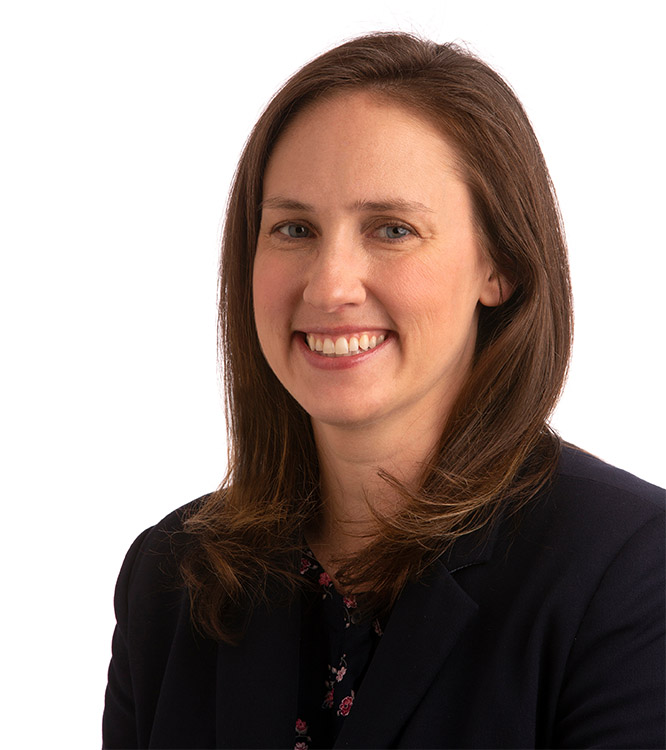Public health scientist lends expertise to national database addressing safer use of chemicals in our environment
 Katie Pelch, PhD, wants you to know what’s in our environment and how the chemicals we’re exposed to every day may affect our health.
Katie Pelch, PhD, wants you to know what’s in our environment and how the chemicals we’re exposed to every day may affect our health.
Dr. Pelch is a part-time Assistant Professor, Department of Biostatistics and Epidemiology, in the HSC School of Public Health (SPH), where she teaches courses in environmental health.
She and a collaborative group of scientists from universities and non-profit agencies around the U.S. have released the PFAS-Tox Database, a public health resource to support governments, organizations and communities in making informed decisions about the risks that chemicals pose to people and the planet.
The database looks at Per and Polyfluoroalkyl Substances – PFAS for short – a large class of synthetic chemicals that are widely used in consumer products and industrial processes.
Chemicals like these are often added to products because of their greaseproof, stain-proof, waterproof and nonstick properties. Items like raincoats, nonstick pans, stain-proof carpets and dental floss are examples.
Often referred to as “forever chemicals,” PFAS are extremely persistent and can build up in the bodies of humans and animals. They have one of the strongest chemical bonds, can be highly mobile, spreading quickly in the environment, and can be harmful even at extremely low doses.
“PFAS contamination has grown into a serious global health threat, and our goal in developing the database has been to help citizens, communities and those working to protect human and environmental health stay aware and informed,” Dr. Pelch said.
“PFAS covers a wide class of man-made chemicals – up to 9,000 – that we can be exposed to through personal care products, our air and drinking water,” she said “They are not currently regulated, and there have been some large, prominent legal cases in the last several decades where these chemicals were linked to adverse health outcomes including hypertension, cancer, suppressed immune systems in children and other problems.”
A landmark case that SPH students explore in one of Dr. Pelch’s courses involves people’s experiences in one of the largest U.S. community-organized studies, where it was discovered that a factory in West Virginia had been releasing large amounts of chemicals into the drinking water supply. Community health was impacted and community members pushed back against the manufacturer, yet there are still no regulations on this chemical.
This is just one example of what prompted Dr. Pelch and colleagues to look further into PFAS and develop the database. Today it is used by government agencies, manufacturers involved with or working to avoid these types of chemical combinations in their products, citizen groups and organizations lobbying for change.
Although this work is outside of Dr. Pelch’s instructional role within the SPH, it informs her teaching and goes a long way in providing her students with a real-world perspective on how the practices of the chemical industry threaten public health and reveal why there is a need for more stringent government regulation.
While her primary interest area involves public water supply safety, Dr. Pelch works with others in the field addressing PFAS safety across clothing, food products, textile treatment and other consumer goods. She also works directly with communities and legislators across the U.S. to raise awareness and advocate for industry standards.
The PFAS database and resulting work by Dr. Pelch and fellow scientists has been sent to the National Academies of Sciences & Medicine, the U.S. Environmental Protection Agency (EPA), various state-level health and environmental agencies and both domestic and international non-profit organizations.
“This is a global issue and one we should all be concerned about,” she said. “States and communities are leading the way in taking action, which is good news, but there is still room for improvement and a lot of knowledge still to be shared with the public.”





Social media